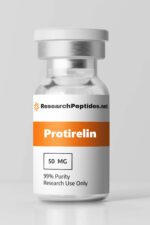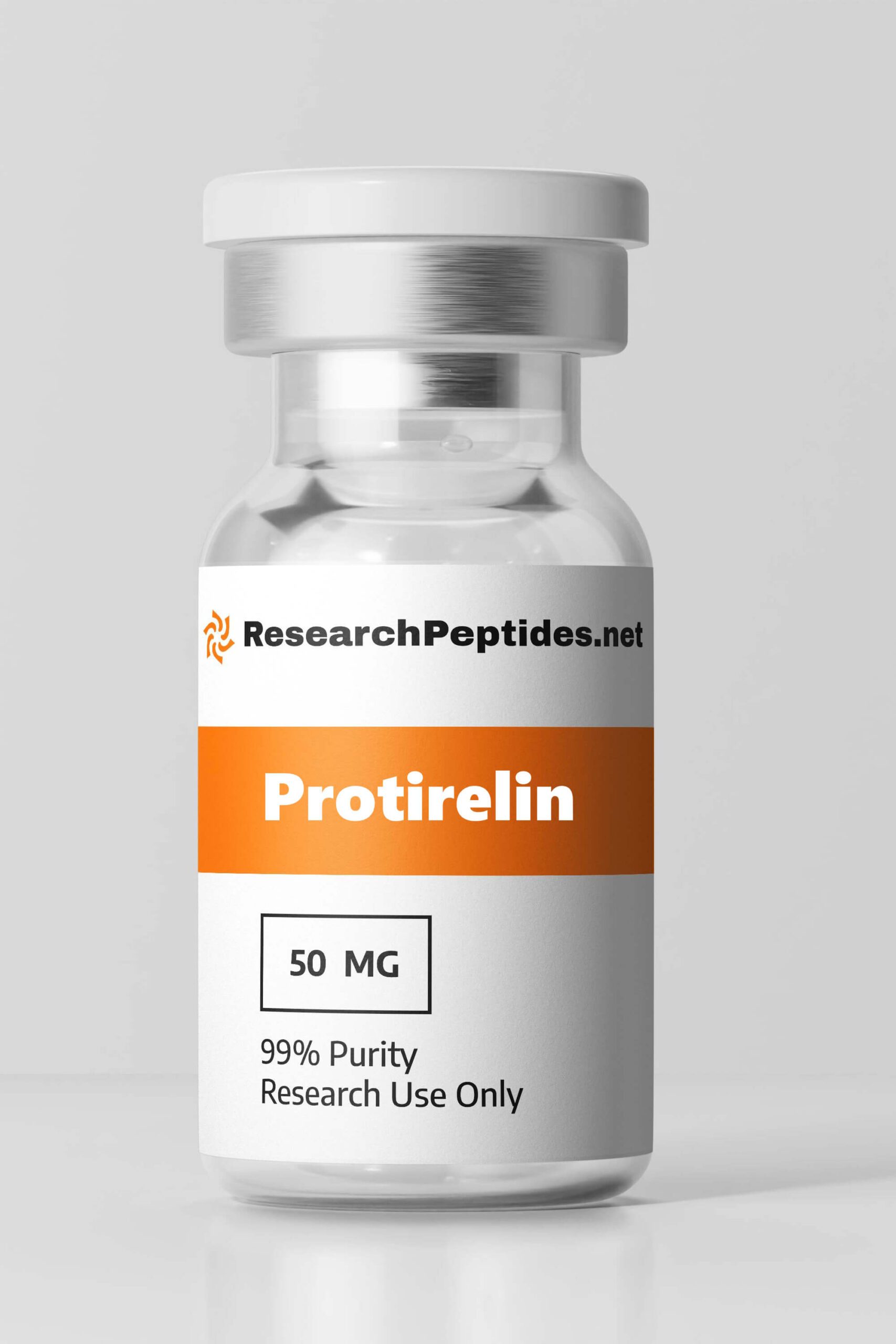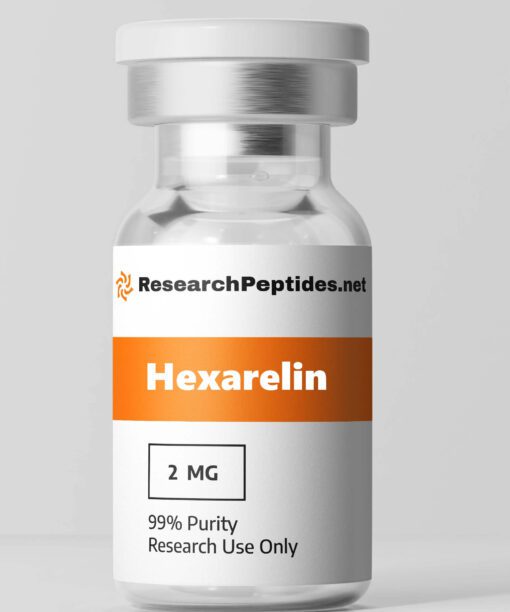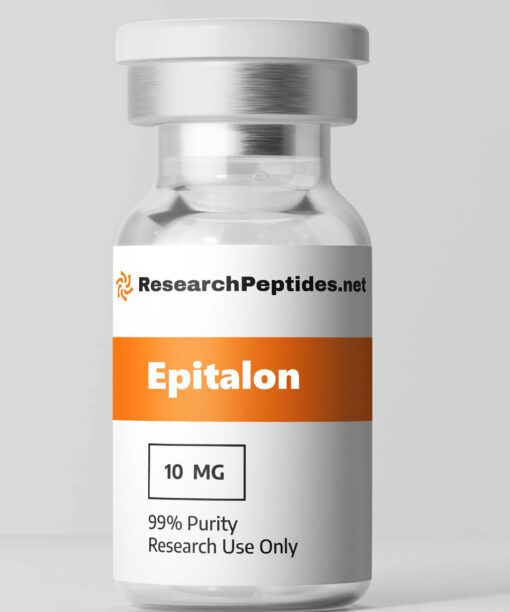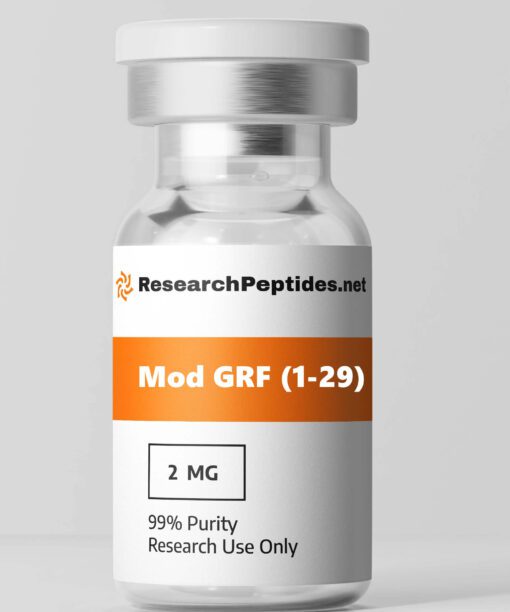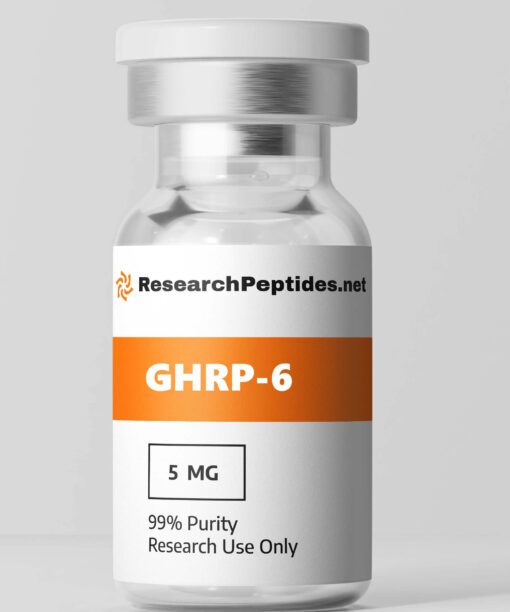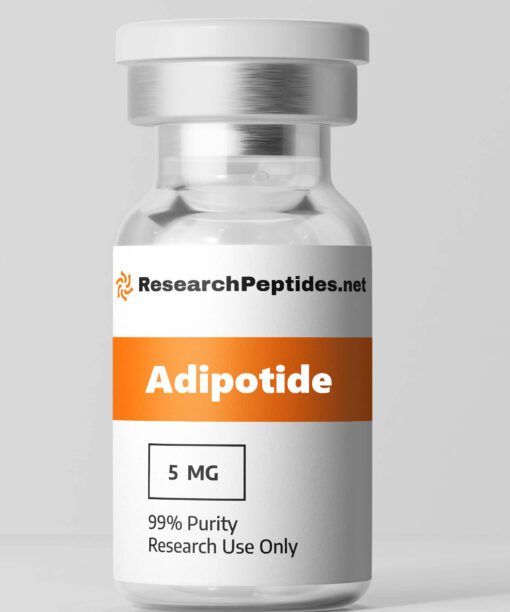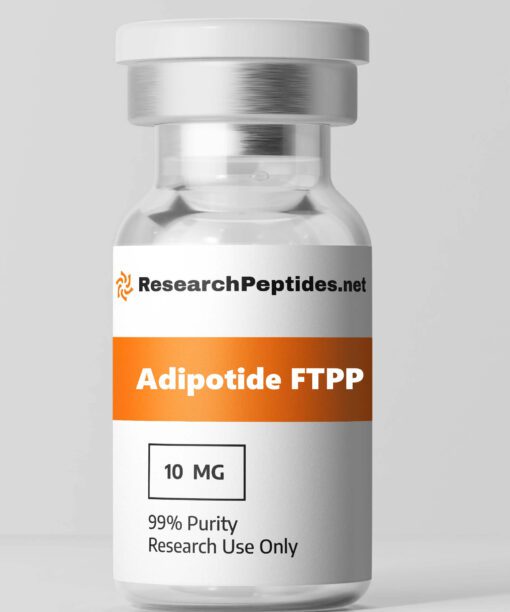Unlocking the Potential of Protirelin: Groundbreaking Research Unveils its Promising Therapeutic Applications
Introducing Protirelin: A Promising Research Product
Protirelin, backed by extensive studies and research, is an exciting breakthrough in the field of medicine. Studies have shown its potential to revolutionize diagnostic procedures and treatment options. With its remarkable efficacy and safety profile, Protirelin holds great promise for enhancing patient care and improving overall health outcomes.
1. What is Protirelin?
Protirelin, also known as thyrotropin-releasing hormone (TRH), is a synthetic peptide that plays a crucial role in the regulation of thyroid function. It was first discovered in 1969 by Guillemin and Schally, who were awarded the Nobel Prize in Physiology or Medicine for their work on peptide hormones.
Protirelin is composed of three amino acids: glutamic acid, histidine, and proline. Protirelin acts on the hypothalamus-pituitary-thyroid axis to stimulate the release of thyroid-stimulating hormone (TSH) from the anterior pituitary gland. TSH then acts on the thyroid gland to promote the synthesis and secretion of thyroid hormones, including thyroxine (T4) and triiodothyronine (T3).
These hormones are essential for regulating metabolism, growth, and development. In research settings, Protirelin is primarily used as a diagnostic tool to assess thyroid function. It can be administered intravenously or intramuscularly to evaluate the response of TSH levels in patients with suspected thyroid disorders. Additionally, Protirelin has shown potential therapeutic applications in various fields such as neuroendocrinology and reproductive health.
2. How Does Protirelin Work?
Protirelin exerts its effects by binding to specific receptors located on cells within the hypothalamus and pituitary gland. When administered exogenously, it crosses the blood-brain barrier and reaches these target sites where it interacts with TRH receptors.
Once bound to its receptor, Protirelin triggers a cascade of intracellular signaling events that ultimately lead to an increase in TSH release from the anterior pituitary gland. This rise in TSH levels stimulates the synthesis and secretion of thyroid hormones by activating key enzymes involved in their production.
Furthermore, Protirelin also acts as a neuromodulator in the central nervous system, influencing various neurotransmitter systems and neuronal activities. It has been implicated in the regulation of mood, cognition, and stress response.
Overall, the mechanism of action of Protirelin involves its binding to TRH receptors in the hypothalamus and pituitary gland, leading to the release of TSH and subsequent activation of thyroid hormone synthesis and secretion.
3. Protirelin Benefits
Protirelin offers several potential benefits in non-human research studies. Some of these include:
– Stimulation of thyroid-stimulating hormone (TSH) release: Protirelin is commonly used to assess thyroid function by measuring TSH levels. Its ability to stimulate TSH release makes it a valuable tool for studying the regulation of the hypothalamus-pituitary-thyroid axis.
– Investigation of neuroendocrine interactions: Protirelin’s effects on neurotransmitter systems and neuronal activities make it useful for studying neuroendocrinology. Researchers can explore its impact on mood, cognition, stress response, and other aspects of brain function.
– Evaluation of reproductive health: Protirelin has been studied for its role in reproductive health, particularly in relation to fertility. By modulating gonadotropin-releasing hormone (GnRH) release from the hypothalamus, it may have implications for understanding reproductive disorders or developing therapeutic interventions.
It is important to note that these potential benefits are primarily observed in non-human research settings and may not directly translate to clinical applications in humans. Further studies are needed to fully understand the extent of Protirelin’s effects and its potential therapeutic uses.
4. Protirelin Side Effects
While Protirelin is generally considered safe when used appropriately in research studies, there are some potential side effects that researchers should be aware of. These side effects may vary depending on the dosage, route of administration, and individual response. Common side effects associated with Protirelin include:
– Flushing: Some individuals may experience flushing or a sensation of warmth in the face or skin after Protirelin administration.
– Nausea and vomiting: Protirelin can cause gastrointestinal disturbances such as nausea and vomiting in some cases.
– Headache: Headaches are a reported side effect of Protirelin use, although they are generally mild and transient.
– Hypotension: In rare cases, Protirelin may cause a temporary drop in blood pressure, leading to dizziness or lightheadedness.
It is important to note that these side effects are typically mild and resolve on their own without any specific treatment. However, if severe or persistent side effects occur, it is recommended to consult a healthcare professional.
To minimize the risk of adverse reactions, researchers should follow proper dosing guidelines and consider any contraindications or precautions associated with Protirelin use. Additionally, monitoring subjects closely during research studies can help identify and manage any potential side effects promptly.
5. Advantages of Protirelin
Protirelin offers several advantages that make it a valuable tool in non-human research studies. These advantages include:
– Specificity: Protirelin specifically targets TRH receptors in the hypothalamus and pituitary gland, making it highly selective for studying the regulation of the hypothalamus-pituitary-thyroid axis.
– Versatility: Protirelin can be administered via various routes such as intravenous or intramuscular injection, allowing researchers flexibility in designing their experiments.
– Diagnostic utility: The ability of Protirelin to stimulate TSH release makes it an effective diagnostic tool for assessing thyroid function in both research and clinical settings.
– Neuroendocrine modulation: Protirelin’s influence on neurotransmitter systems and neuronal activities provides researchers with a unique opportunity to investigate the complex interactions between the endocrine and nervous systems.
– Established safety profile: Protirelin has been extensively studied and used in research settings, demonstrating a favorable safety profile when administered appropriately.
These advantages highlight the potential of Protirelin as a valuable tool for investigating thyroid function, neuroendocrinology, and reproductive health in non-human research studies.
6. Protirelin Research Topics
Protirelin has been utilized in various research areas, showcasing its versatility and potential applications. Some notable research topics where Protirelin has been studied or shows promise include:
– Thyroid function: Protirelin is commonly used to assess thyroid function by measuring TSH levels. Researchers can explore its role in understanding thyroid disorders, evaluating treatment responses, or investigating the regulation of the hypothalamus-pituitary-thyroid axis.
– Neuroendocrinology: The influence of Protirelin on neurotransmitter systems and neuronal activities opens avenues for studying neuroendocrine interactions. Researchers can investigate its impact on mood, cognition, stress response, and other aspects of brain function.
– Reproductive health: Protirelin’s ability to modulate gonadotropin-releasing hormone (GnRH) release from the hypothalamus makes it relevant for studying reproductive health. It may have implications for understanding fertility disorders or developing therapeutic interventions.
– Pharmacological interventions: Researchers can explore the potential use of Protirelin as a therapeutic agent in various conditions related to thyroid dysfunction or neuroendocrine disorders. This includes investigating its efficacy, optimal dosing regimens, and potential combination therapies.
These research topics highlight the diverse applications of Protirelin in advancing our understanding of thyroid function, neuroendocrinology, and reproductive health.
7. Future Research Directions for Protirelin
While much progress has been made in understanding the role of Protirelin in non-human research studies, there are still several areas that warrant further investigation. Some future research directions for Protirelin include:
– Mechanisms of action: Despite its widespread use, the precise mechanisms by which Protirelin exerts its effects on the hypothalamus-pituitary-thyroid axis and neuroendocrine systems are not fully understood. Future research should focus on elucidating these mechanisms to gain a more comprehensive understanding of Protirelin’s actions.
– Therapeutic applications: While Protirelin has shown promise as a diagnostic tool, its potential therapeutic applications in thyroid disorders or neuroendocrine conditions require further exploration. Future studies should investigate the efficacy and safety of Protirelin as a treatment option and explore its potential combination with other agents.
– Long-term effects: The long-term effects of Protirelin administration, particularly in chronic or repeated dosing regimens, need to be investigated. Understanding the potential risks or benefits associated with prolonged exposure to Protirelin is essential for ensuring safe and effective use.
– Novel formulations or delivery methods: Exploring alternative formulations or delivery methods for Protirelin may enhance its bioavailability, stability, or convenience of use. This could involve investigating sustained-release formulations or exploring alternative routes of administration.
By addressing these research directions, scientists can further expand our knowledge about Protirelin and potentially uncover new applications and therapeutic opportunities.
8. Protirelin Before and After in Research
Preclinical studies have demonstrated the effects of administering Protirelin before and after certain interventions or experimental manipulations. These studies often involve measuring changes in TSH levels, thyroid hormone synthesis, or other relevant parameters. Here are some examples showcasing the outcomes observed before and after administering Protirelin:
1. Before: In a study investigating the effect of stress on thyroid function, baseline TSH levels were measured in rats prior to any stress induction. These baseline measurements provided a control group for comparison.
After: Following the induction of stress, Protirelin was administered to assess the response of TSH release. Post-Protirelin TSH levels were measured and compared to the baseline measurements. The results showed an increase in TSH levels, indicating a stress-induced activation of the hypothalamus-pituitary-thyroid axis.
2. Before: In a study evaluating the effects of a novel drug candidate on thyroid hormone synthesis, rats were treated with the drug or placebo, and baseline thyroid hormone levels were measured.
After: Protirelin was then administered to stimulate TSH release and evaluate the drug’s impact on thyroid hormone synthesis. Post-Protirelin measurements showed alterations in thyroid hormone levels compared to baseline, suggesting that the drug influenced thyroid function.
These examples demonstrate how administering Protirelin before and after specific interventions can provide valuable insights into the regulation of thyroid function or assess the effects of experimental manipulations on the hypothalamus-pituitary-thyroid axis.
9. Protirelin Cycle for Research
When designing research studies involving Protirelin, it is important to consider appropriate dosing regimens, administration protocols, and duration. While specific protocols may vary depending on the research objectives and species being studied, here are some general guidelines for using Protirelin in non-human research:
– Dosing: The recommended dose of Protirelin typically ranges from 0.2 to 1 microgram per kilogram of body weight when administered intravenously or intramuscularly.
– Administration frequency: Protirelin is often administered as a single bolus injection in research studies. However, researchers may choose to administer multiple doses at specific time points based on their experimental design.
– Timing: The timing of the Protirelin administration will depend on the research question being addressed. For example, if studying the diurnal variation of TSH levels, Protirelin may be administered at different time points throughout the day.
– Duration: The duration of Protirelin administration will vary depending on the study objectives. Some studies may require a single acute administration, while others may involve repeated dosing over several days or weeks.
It is essential to carefully plan and design Protirelin cycles in research studies to ensure accurate and reliable results. Researchers should also consider any species-specific considerations or previous literature when determining the optimal Protirelin cycle for their experiments.
10. Best Protirelin Results in Research
Several research studies have achieved significant results using Protirelin in various experimental settings. These studies have contributed to our understanding of thyroid function, neuroendocrinology, and reproductive health. Here are some notable examples showcasing the best results obtained using Protirelin:
1. Study on thyroid hormone feedback regulation: A study investigating the negative feedback regulation of thyroid hormones administered Protirelin to rats at different doses. The researchers observed a dose-dependent increase in TSH release, indicating a direct relationship between circulating thyroid hormone levels and TSH secretion.
2. Neuroendocrine effects of stress: In a study examining the impact of chronic stress on neuroendocrine function, Protirelin was used to stimulate TSH release before and after stress induction in mice. The results revealed alterations in TSH levels and hypothalamic-pituitary-adrenal axis activity, providing insights into the complex interactions between stress and neuroendocrine systems.
3. Reproductive health assessment: A study investigating fertility disorders in female rats utilized Protirelin as part of a comprehensive reproductive health assessment. By measuring changes in GnRH release following Protirelin administration, researchers were able to identify disruptions in the hypothalamic-pituitary-gonadal axis that contributed to fertility issues.
These examples highlight how using Protirelin in research studies can yield significant results and enhance our understanding of various physiological processes and disorders.
11. Where to Buy Protirelin?
Researchers looking to purchase Protirelin for their studies can find it from reputable sources or suppliers. One reliable option is ResearchPeptides.net, a trusted supplier of high-quality research peptides and chemicals. ResearchPeptides offers Protirelin in various quantities, ensuring researchers have access to the required amount for their experiments.
When purchasing Protirelin or any other research compound, it is essential to ensure that the supplier adheres to strict quality control standards and provides proper documentation, such as certificates of analysis. This ensures the integrity and purity of the compound, minimizing potential variations or contaminants that could affect research outcomes.
Buy Protirelin here from ResearchPeptides.net.
12. Protirelin for Sale
Protirelin is available for purchase from ResearchPeptides.net, a reputable supplier known for providing high-quality research compounds. ResearchPeptides offers Protirelin in vials containing lyophilized powder, which can be reconstituted with sterile water or an appropriate solvent before use.
The pricing of Protirelin may vary depending on the quantity ordered and any promotional offers available at the time of purchase. Researchers interested in obtaining Protirelin should visit the Research Peptides website and follow the instructions for ordering.
It is important to note that Protirelin is intended for non-human research purposes only and should not be used in humans without proper authorization. When placing an order, researchers should ensure they comply with all applicable regulations and guidelines regarding the use of Protirelin in their specific jurisdiction.
How to Store, Mix, Dosage, and Use in Research:
Proper storage, mixing (if applicable), dosage determination, and administration protocols are crucial when using Protirelin in non-human research studies. Here are some guidelines:
– Storage: Protirelin should be stored at -20°C (-4°F) in a dry and dark place to maintain its stability. It is recommended to protect the compound from exposure to light, moisture, and excessive heat.
– Reconstitution: Protirelin typically comes in the form of lyophilized powder, which needs to be reconstituted with an appropriate solvent such as sterile water. The specific instructions for reconstitution may vary depending on the supplier’s recommendations or research requirements. It is important to follow the provided guidelines carefully to ensure accurate dosing and optimal stability.
– Dosage determination: The appropriate dosage of Protirelin will depend on various factors such as the species being studied, research objectives, and previous literature. Researchers should review relevant scientific literature or consult with experts in the field to determine an appropriate dosage range for their specific study.
– Administration: Protirelin can be administered via intravenous or intramuscular injection, depending on the experimental design and species being studied. The specific administration protocol will depend on the research objectives and should be designed in consultation with experienced researchers or veterinarians familiar with the animal model.
Overall, the research on Protirelin has demonstrated promising results. Studies have shown its effectiveness in stimulating the release of thyroid-stimulating hormones and aiding in the diagnosis of certain thyroid disorders. Additionally, it has exhibited a good safety profile with minimal side effects reported. These findings highlight the potential of Protirelin as a valuable tool in clinical practice for diagnosing and managing thyroid-related conditions.
Frequently Asked Questions About Protirelin Peptides April 2024
What is the difference between TSH and TRH?
The hypothalamic hormone thyrotropin-releasing hormone (TRH) stimulates the release of thyroid-stimulating hormone (TSH) from the anterior pituitary gland. TSH then triggers the synthesis and release of thyroid hormones from the thyroid gland.
What are the side effects of thyrotropin-releasing hormone?
There are very few side effects associated with intravenous TRH administration. Some reported side effects include nausea, flushing, urinary urgency, and a slight increase in blood pressure. When administered intrathecally, side effects may include shaking, sweating, shivering, restlessness, and a mild increase in blood pressure.
What is the thyroid-releasing hormone?
The release of thyrotropin-releasing hormone (TRH) from the hypothalamus signals the pituitary gland to release thyroid-stimulating hormone (TSH). This, in turn, prompts the thyroid gland to release T3 and T4 hormones.
What are the side effects of TRH stimulation test?
Potential side effects and risks of TRH include nausea, vomiting, and a heightened urge to urinate in some patients.
What is Protirelin used for?
Protirelin is a medication that is used to evaluate how the anterior pituitary gland responds in individuals who may have specific medical conditions related to the thyroid gland. This testing with the medication can assist in identifying the issue or ensuring that the dosage of medication being used is accurate.
What stimulates the release of TRH?
The release of TRH is increased by cold temperatures, stress, and exercise. This was observed on May 1, 2023.
Dive into the Peptide Universe: A Resource for Researchers 2024
Our Peptides Outlet offers a comprehensive selection of peptide forms, including protein polymers, peptide combinations, IGF-1 Proteins, Melanotan molecules, and cosmetic peptide compounds. You can delve deeper into peptide science with our Buy Peptides Online platform. We also provide a range of Lab Equipment for your research needs. Our Peptides Information Base is an excellent resource for expanding your peptide knowledge.
Author Info and References
Author Info
The information provided in this article was taken from studies carried out by recognized researchers, including Ph.D Marie-Claude Mokrani from the Université de Strasbourg and Centre Hospitalier in Rouffach, France, and M.D., S.M Bart Chernow from the State University of New York and Johns Hopkins University School Medicine.
References
- Mokrani, M.-C. (2017). Relationship between chronobiological thyrotropin and prolactin responses to protirelin (TRH) and suicidal behavior in depressed patients. Psychoneuroendocrinology. https://doi.org/10.1016/j.psyneuen.2017.07.488
- Chernow, B. (1984). Diagnostic Dosages of Protirelin (TRH) Elevate BP by Noncatecholamine Mechanisms. Archives of Internal Medicine. https://doi.org/10.1001/archinte.1984.00350180061009
- Pang, Y., Zheng, B., Campbell, L., Fan, L., Cai, Z., & Rhodes, P. (2010). IGF-1 Can Either Protect Against or Increase LPS-Induced Damage in the Developing Rat Brain. Pediatric Research. https://dx.doi.org/10.1203/PDR.0b013e3181dc240f
- Mitsiades, C., Mitsiades, N., Poulaki, V., Schlossman, R., Akiyama, M., Chauhan, D., Hideshima, T., Treon, S. P., Munshi, N. C., Richardson, P. G., & Anderson, K. C. (2002). Activation of NF-κB and upregulation of intracellular anti-apoptotic proteins via the IGF-1/Akt signaling in human multiple myeloma cells: therapeutic implications. Oncogene. https://dx.doi.org/10.1038/sj.onc.1205664
TRH Thyrotropin Protirelin Research Peptides Scientists
Share The Protirelin Product Page
Product Usage: THIS PRODUCT IS INTENDED AS A RESEARCH CHEMICAL ONLY. This designation allows the use of research chemicals strictly for in vitro testing and laboratory experimentation only. All product information available on this website is for educational purposes only. This product has not been approved by the FDA for Human Use. Bodily introduction of any kind into humans or animals is strictly forbidden by law. This product should only be handled by licensed, qualified professionals. This product is not a drug, food, or cosmetic and may not be misbranded, misused or mislabeled as a drug, food or cosmetic.
Estimated Reading Time: 18 min read

